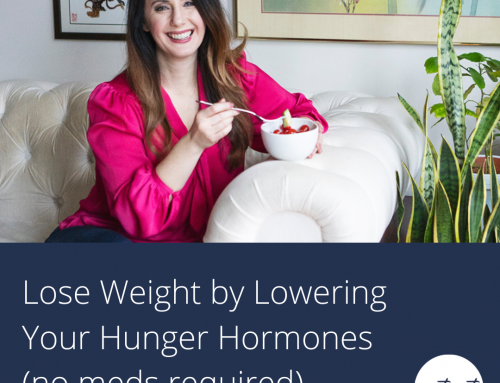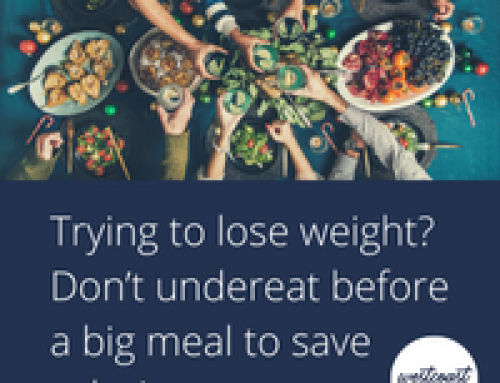I hope everyone enjoyed the holidays! It’s a time of celebration, family and friends and, for many, also a spotlight on a broken relationship with food, eating and your body. From internet misinformation to years of dieting on and off, there are lots of reasons why so many of us make sweeping New Year’s Resolutions. About our weight, our food, our bodies. Most of them coming from a place of not feeling good enough. When you don’t feel at home in your body you resolve to lose 20 lbs. When we use food to cope with our stress and emotions, we resolve to go on yet another extreme diet to undo the damage (juice cleanse, anyone?). Every year we make New Year’s resolutions, and it seems every year they mostly bomb. Learn how to break that pattern this year with well crafted resolutions that stick.
Why Motivation Matters & Traditional “Dieting” Resolutions Fail
Goals that come from a place of “not enough” are rarely successful long term. Seated in punishment and negativity, it’s like having a military bootcamp instructor run your food intake. Motivating for a short term, demoralizing for much longer. You might lose a bit for a few months or stick to a harsh diet for a while – but inevitably it all falls apart and any good changes are undone. Your body suffers on the roller coaster and the diet book will lead you to believe that you just didn’t try hard enough, just weren’t good enough, that it is your fault that the new “it” diet didn’t work for you long term. 
But, extreme diets are set up so you will fail; the changes aren’t broken down to be sustainable without pain or deprivation; the extremely low caloric intake may actually slow your metabolism over time as your body compensates by up-regulating appetite hormones; they rely on limitless and largely mythical “willpower”; and perhaps the biggest issue is that they rarely address the underlying cause of excess weight or overeating which is different for everyone.
So this year, instead of buying in to the slew of magazine headlines with resolutions that are both ineffective and demoralizing, do health differently. Believe me, weight can be lost without a single cleanse, fad diet or bootcamp. I challenge you to focus on building up small, simple changes and repairing your relationship with food and weight if need be.
These are the kind of changes that make any dietary change stick. They are the ones my client’s eye-roll at and put off at the beginning, but when they start to feel good about themselves and in control of what and how they eat, it becomes crystal clear just how important those little consistent acts of success and self care are. Weight loss and eating well for those with a troubled dieting history is kind of like making a giant Frosty sized snowball – you start small and each little bit builds and builds in to something much bigger when you roll them together. Building on small, simple changes is the key to lasting diet success.
Get Clear On Your Goal
 Now this doesn’t mean you can’t have specific and actionable goals around weight or diet. I do this all the time with clients. But, it does mean you should approach these differently. If you think your goal is to lose a certain amount of weight- dig a little deeper and ask yourself these 3 questions to get at the root of what you want to achieve.
Now this doesn’t mean you can’t have specific and actionable goals around weight or diet. I do this all the time with clients. But, it does mean you should approach these differently. If you think your goal is to lose a certain amount of weight- dig a little deeper and ask yourself these 3 questions to get at the root of what you want to achieve.
- Why do I want to lose weight or go on a diet?
Get really clear and honest about what your motivations are. Who are you doing this for? Why? This might be to reduce pain in your knees or back, to feel more comfortable in your clothes, to make you a better runner/skier/mom/dad, to improve your energy or make your breathing easier. Is there a certain shirt or dress you want to fit in to? Are you trying to prevent the health issues your family members suffer from? Do you think you’ll be a better or more likeable person?
2. How will it change me? What will be different?
How will you feel? Happinesss? Success? Fitter? Stronger? More energetic? Safer ? Loved? Try to figure out what about your life will change if you can meet that goal.
3. Am I aiming for the right goal?
Compare what you are hoping to change with the goal you set. Is the underlying problem just your weight? Is the issue that you overeat because you are sad, stressed or lonely? Food as a coping tool isn’t unusual, but it is damaging when relied upon too often. Weight doesn’t change who you are or what you are worth – many who have lost weight on punishing diets were surprised that they didn’t feel different inside when they got to goal. Whatever self doubt or inadequacy plagued them before they lost weight was still there, and until they dealt with that they didn’t feel better.
Sometimes losing weight seems like the answer, when the issue is a bit deeper. Now I know that people often need to lose weight at one point or another, and helping those people do so in a healthful way is my bread and butter. But….if what you are trying to change is really your state of mind, your sense of self worth or how you cope with life’s bumps then you need to adjust your goal to address the real need. You may resolve to start the counselling sessions you’ve put off for years, or even just to begin exploring meditation or mindfulness as tools to quiet your mind and manage stress without turning to food. Small and consistent acts of self care can be incredibly important to offset stress before it bubbles over in to emotional eating. We’ll talk more about ways to do this day to day in the 3rd post in this series and get some tips from a Registered Clinical Counsellor.
Refine and Define
Now that you’ve figured out what your real goal is and why it’s important to you, it’s time to refine and plan. You need a realistic and sustainable path to success.
Reframe your goal in a positive way, if it isn’t already.
If your answer to “how will it change me” was pretty full of negativity about yourself (to feel less disgusting, to fit in to a specific size, to stop being such a pig about ice cream, to get my mother in law off my back about my weight etc…) reframe it to reflect the positive outcome, think the way someone who cares about you would think.
Pick 1 or 2 small practical (food or exercise or self care) related changes. Work on those until they’re consistent, then pick new ones.
Repeat after me. I will resist the urge to change EVERYTHING all at once. Humans are wired to enjoy success. Without the frequent small rewards of achieving a goal, no matter how simple, it is incredibly difficult to keep going. So, if you want changes to stick start reeeeeally small. Don’t add new things until you’re comfy with the ones you started with. Celebrate when you do get good and consistent with a change so you get the biochemical brain boost of feeling successful. Don’t sweat the little slips here and there, you are human after all! Just get back to what you were working on as soon as you realize you’re off track. As tempting as sweeping changes may seem, they build up an “all or nothing” mindset around food and diet that is just as likely to turn a one night bender in to a 3 week free for all as get you used to healthy habits.
Here are some examples of health boosting changes to get you going – each is linked to both overall health and long lasting weight loss. The second instalment of this series on New Year’s Day will be 40 small simple changes you can try (one at a time, of course!).
- Add a handful of leafy greens every day.
- Choose the whole grain option when I’m out to eat
- Add legumes (beans, chickpeas, lentils) twice a week
- Buy and cook fish once a week
Redefine Successful
Get really specific about how you’ll measure improvement. Pick out a couple of indicators of success that don’t have to do with the scale to keep you motivated and noticing the changes in your body. These often come before much changes on the scale but are just as empowering when we bother to notice them.
- More energy
- Stable energy – less caffeine needed during the day
- Better sleep
- Better workouts
- Clearer skin
- Less pain
- Fewer cravings (yes, a bonus side effect of eating balanced meals instead of just low cal meals)
- Improved mood
- Lower blood sugar (if you test)
- Lower cholesterol
How do you feel about New Year’s resolutions? Is there something missing here you’d like to talk about? Share your thoughts and experiences on the facebook page, I’d love to hear from you.
This will be a 3 part series on setting and achieving healthy and mindful eating goals for the New Year. Catch the follow up posts here: (will be linked once posted).
- 40 Small Changes To Make This Year A Healthier One
- Self Care & Healthy Weight Success: Why, How and When- with tips from a Registered Clinical Counsellor.








